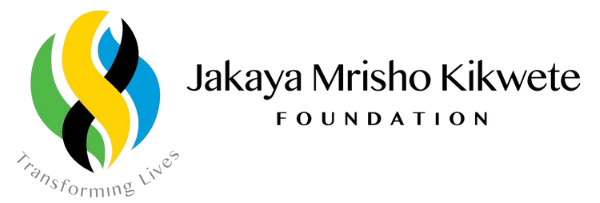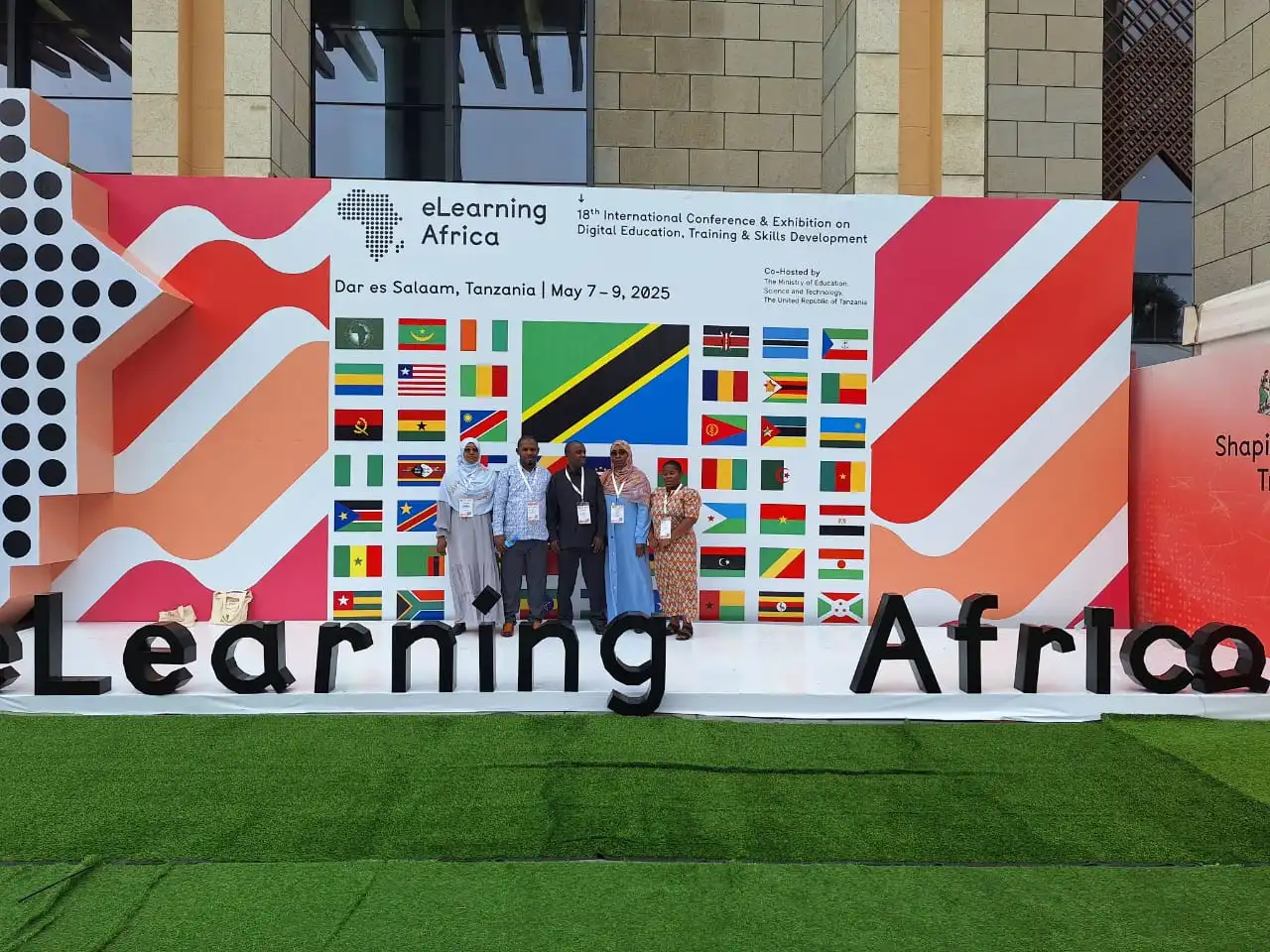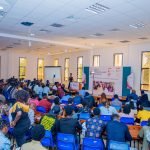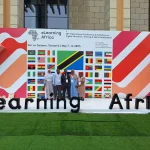Digital learning in Africa holds immense potential, but its development has been hindered by several challenges, including limited internet access, infrastructure deficits, and high costs of devices and connectivity. As of 2023, only 36% of Africa’s population had access to the internet, according to the International Telecommunication Union (ITU), compared to the global average of 66%.
Furthermore, UNESCO reports that during the COVID-19 pandemic, over 89 million African learners were affected by school closures, yet only a small fraction had access to remote learning alternatives. Many rural schools still lack basic electricity, let alone computers or internet access
From May 7th to 9th, 2025, the Jakaya Mrisho Kikwete Foundation (JMKF) proudly participated in the 18th e-Learning Africa Conference held at the Julius Nyerere International Convention Centre in Dar es Salaam. As Africa’s premier event on digital education and training, this conference brought together educators, innovators, and policymakers from across the globe to explore the future of learning.
We were honoured to attend alongside three passionate teachers from Zanzibar and an officer from the Ministry of Education and Vocational Training. These educators are at the heart of our mission: to equip teachers with the skills and tools they need to improve learning outcomes in every corner of Tanzania.
At the moment, we support an ongoing in-service training project in Zanzibar, and we anticipate implementing the Volunteer Teachers program on the Tanzanian Mainland. This conference provided an opportunity to learn how our teachers can be equipped with digital skills to achieve better teaching and learning outcomes.
Throughout the two days, the conference has enabled our teachers to understand the challenges in the learning landscape and utilize technology effectively, to network with professionals in education and government and to foster international partnerships, they have discovered the latest products and tools from leading digital learning providers and to analyse current global trends in digital learning and see how we can fit in.
Throughout the conference, our team explored a wide range of digital trainings from online courses and teacher collaboration platforms to tools designed to make learning more inclusive for students with disabilities. We engaged with experts and pioneers from Africa and beyond who are shaping the future of digital education.
Key discussions highlighted both the opportunities and challenges facing digital learning in Africa. On the one hand, technology is helping break down barriers to education by enabling learning anytime, anywhere. On the other hand, many schools still face obstacles like limited internet access, unreliable electricity, and a lack of digital skills among teachers.
The feedback from the teachers in Zanzibar were deeply encouraging. In their words:
“We are truly grateful to JMKF for this opportunity, which has transformed our perspective on digital learning. We will eagerly share our newfound insights with our colleagues. Although our resources may be limited, we can leverage our strengths to enhance digital learning and achieve remarkable outcomes in our schools.”
The conference brought together e-learning practitioners and service providers from both national and international backgrounds. Attendees discussed various digital achievements that have transformed the educational landscape. These advancements include enabling students to access education from anywhere, breaking down geographical barriers, and providing resources tailored for students with disabilities to ensure everyone has access to quality education.
Additionally, online courses and resources are available to help teachers enhance their digital skills and teaching methodologies. Furthermore, platforms that facilitate collaboration among teachers allow for the sharing of best practices and resources.
Digital learning is no longer optional, it’s essential. We are inspired by the potential we saw at the conference and excited to integrate what we’ve learned into our ongoing projects.
We remain committed to empowering teachers, bridging digital divides, and creating opportunities for every student in Tanzania to succeed in a connected world. With the right tools and the right support, we believe that transformation is not only possible—it’s already happening.
The achievements in school digital learning are vast and impactful, contributing to a more accessible, engaging, and efficient educational environment. By leveraging digital tools and technologies, schools can continue to innovate and improve learning outcomes for students.




